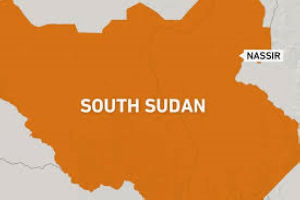As part of measures to increase tourism revenue, the sector Ministry in collaboration with the Education Ministry has begun a special project to aggressively promote domestic tourism through primary, first and second cycle schools.
Dubbed: “Promotion of Domestic Tourism through Schools, Every Child a Tourism Enthusiast,” the project aims to encourage pupils and students in primary, Junior and Senior High schools to participate actively in organised tourism related activities.
Mr. Alphonse Kumaza, a tourism officer and coordinator of the domestic tourism project, speaking to the Ghana News Agency on Friday said the pilot phase has begun with 30 selected schools - three from each region including primary, junior and senior high schools.
He said priority was given to schools in deprived communities. The pilot phase started on July 12th this month with selected schools from the Volta Region visiting the Castle, Osu, and Kwame Nkrumah Memorial Park.
Mr. Kumaza said the project’s overall objective is enhance students’ knowledge and understanding of the country, facilitate transfer of skills, develop sustainable livelihoods and create employment opportunities for young people through domestic tourism.
“It is a nationwide schools’ excursion programme to encourage school children to appreciate their country better and to build linkages and networks that bring about unity in diversity, peace and harmony as well as bringing tribal differences,” Mr. Kumaza said.
He added: “It is hoped that as children are exposed to tourism at early stage, it will become part and parcel of their daily lives. The multiplier effect is that, the Ghanaian society will become more tourism conscious, and this will in turn increase tourism receipts locally,” he said.
Mr. Kumaza said, when domestic tourism was given the needed attention with the right measures in place, it is estimated to rake-in five times more tourist receipts than international receipts.
As part of the programme, children will be encouraged to take part in activities such as quizzes, essays, souvenir production, arts and craft and traditional food cooking competitions being essential components of the domestic tourism package.
The policy framework for the project, Mr. Kumaza said, is centered on tourism as a development strategy to help achieve the eighth targets of the Millennium Development Goals and also engender national development.
The project is a public-private partnership.**
Regional News of Saturday, 14 July 2012
Source: GNA












